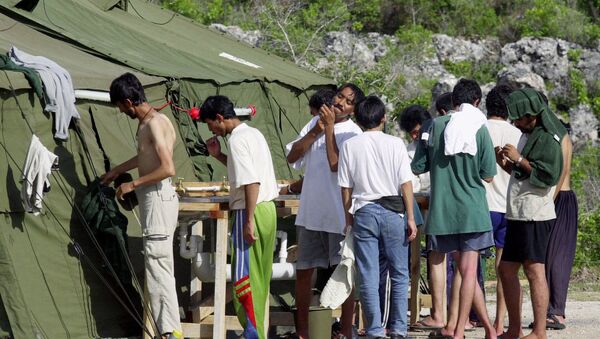This week, Amnesty International and Human Rights Watch, whose representatives visited the Nauru processing center in July, published a report, where they documented how some 1,200 asylum-seekers, forcibly transferred to the island from Australia, are subjected to inhuman living conditions and denial of medical care while authorities of both countries ignore the violations.
"Unfortunately legal remedies are very limited with regards to bringing the perpetrators of the abuses on Nauru to justice," Graham Thom, who himself visited Nauru in 2012, said, when asked whether there were legal means to hold those responsible for violations accountable.
He mentioned that according to the Australian laws, people operating the center in Nauru are immune from prosecution with similar difficulties existing in Nauru. Both states impose strict secrecy on the processing of asylum seekers in Nauru and refuse most requests of visit from journalists or researchers. The latest trip to the island by rights groups was made undercover as previous official requests were denied.
"Unfortunately, as our research has demonstrated, despite promises by both governments to improve the situation very little has actually been done and the situation would appear to have deteriorated even further. The wall of secrecy and access to the island makes taking any further action extremely difficult; however challenges for compensation (given the obvious damage done to a number of individuals taken to Nauru) may still remain a future possibility," Thom said.
Following the publication of the latest report, Australia's Department of Immigration and Border Protection said it strongly refuted many of the report's allegations, and that it does not exert control over Nauru's laws.
Australia's immigration policy dictates that asylum-seekers trying to reach the country by boat should not be settled in Australia, but be sent for processing to Nauru or to Manus Island in Papua New Guinea.
The Nauru facility was opened in 2001 and ran until 2008. In 2012 it was reopened following the large increase in the number of maritime arrivals by asylum seekers.




